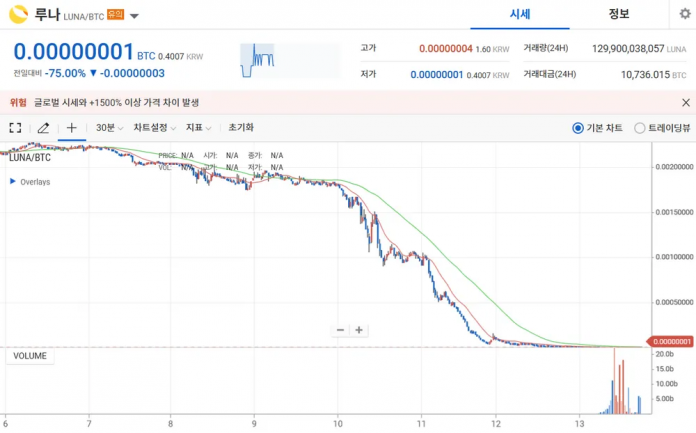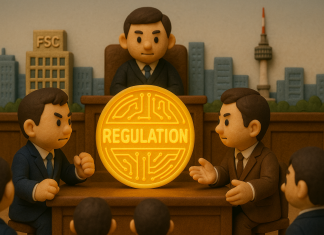
A court has ruled in favor of an investor who filed a lawsuit against the operator of a cryptocurrency exchange, claiming losses due to an inability to sell coins in time because of internal issues at the exchange just before the 2022 Luna coin crash. This marks the first instance where a court has recognized the liability of an exchange in connection with the Terra-Luna crash.
According to legal sources on the 7th, Judge Park Jae-min of the Seoul Central District Court’s Civil Division 70 ruled partially in favor of the plaintiff, A, a private investor residing in Vietnam. A had filed a lawsuit against Dunamu, the operator of the cryptocurrency exchange Upbit, seeking compensation. The court ordered Dunamu to pay A approximately 147 million KRW (around 115,000 USD) plus delayed interest.
The incident dates back to March 24, 2022. A, who was residing in Vietnam at the time, attempted to transfer 1,310 Luna coins from their Upbit wallet to their personal wallet on the overseas cryptocurrency exchange Binance. However, A made a mistake by failing to input the secondary address, causing Binance to return the coins the next day. Unfortunately, the coins were mistakenly deposited into Upbit’s wallet instead of A’s.
A immediately requested Upbit to recover the misdeposited funds, but Upbit delayed the recovery, citing the need to comply with new anti-money laundering regulations that had just come into effect. Despite A making at least 10 recovery requests by May 9, Upbit continuously responded that the recovery would be processed once the necessary procedures were established.

On May 10, the Terra-Luna crash occurred, and by May 18, the value of A’s Luna coins had plummeted from approximately 147 million KRW to just 560 KRW, rendering them essentially worthless.
The court found Dunamu liable, stating that the company was clearly aware of the facts surrounding the misdeposit and that the recovery was not technically impossible. The court ruled that the delay in fulfilling the obligation resulted from Dunamu’s fault.
The court also dismissed Dunamu’s argument that the losses would have occurred regardless of the delay, as A had informed the company on April 24 that they planned to sell the Luna coins to cover their mother’s medical expenses. Additionally, the court pointed out that similar cases of misdeposit due to incorrect secondary addresses had occurred before, and Dunamu should have taken steps to prevent such issues by preparing staff or updating their systems.
Dunamu argued that they were not responsible for accidents caused by incorrect address input as stipulated in their terms and conditions. However, the court ruled that such a clause would be invalid under the Act on the Regulation of Terms and Conditions, as it unfairly disadvantages customers.






